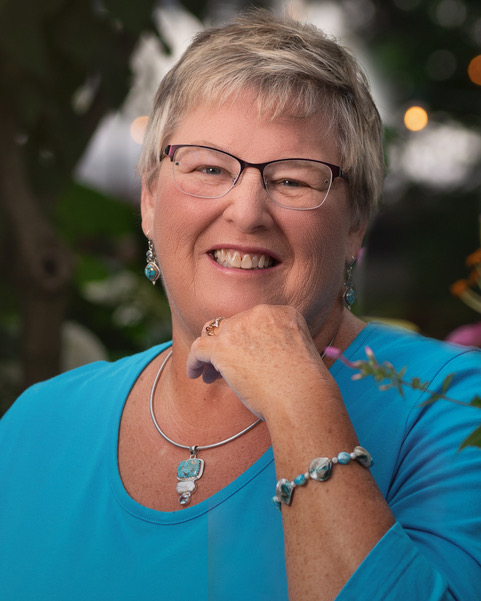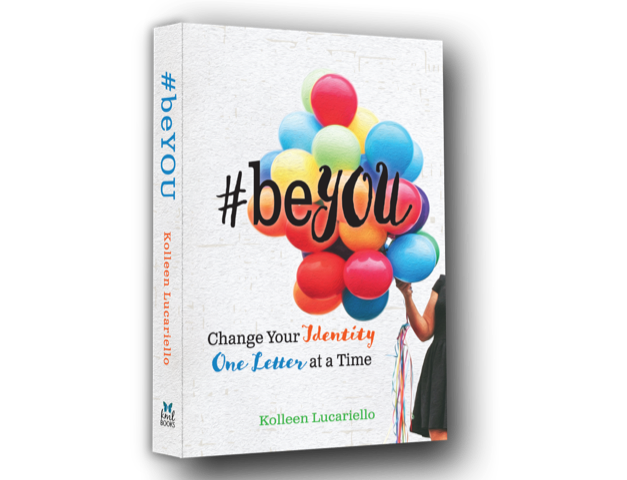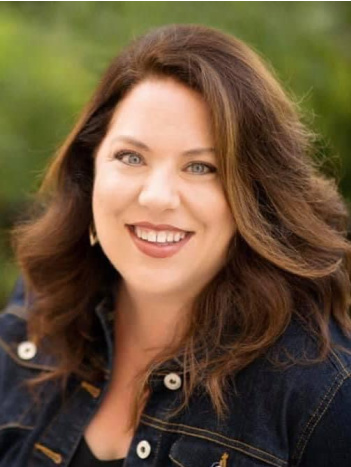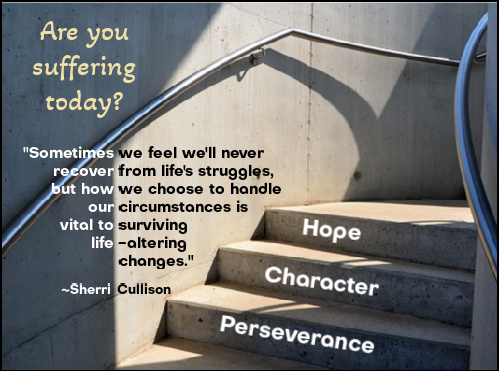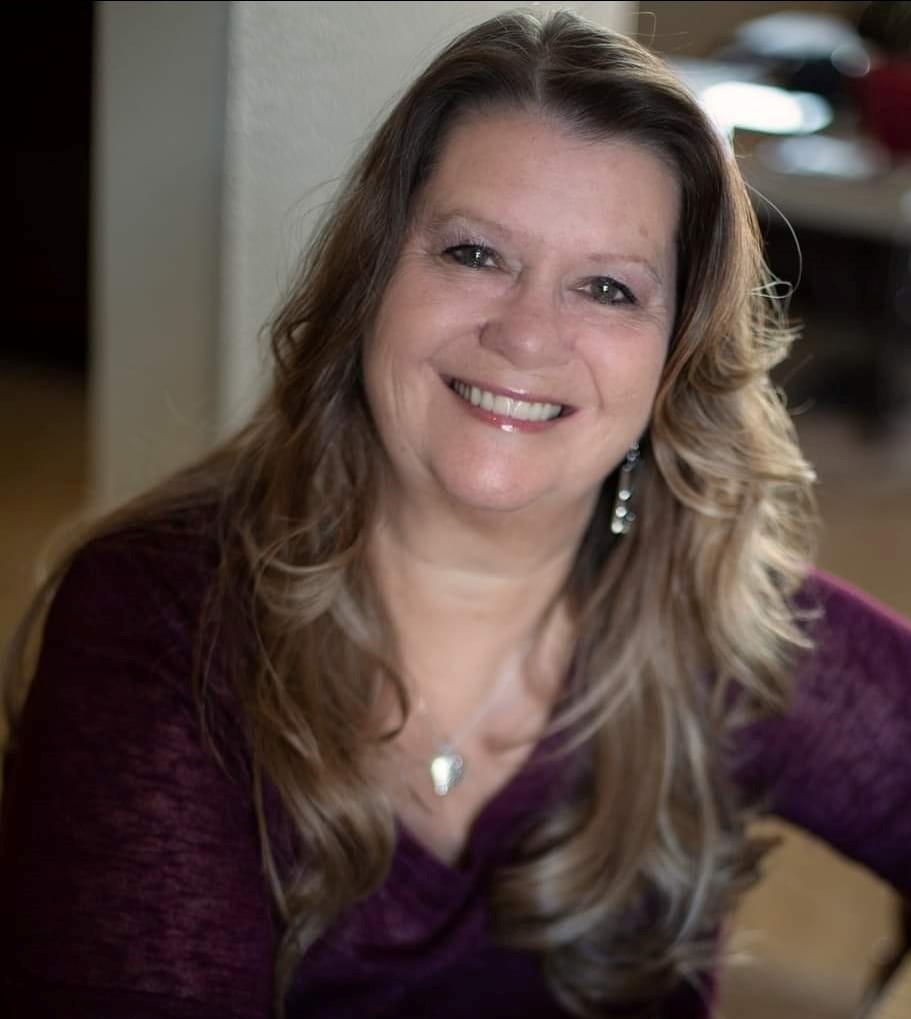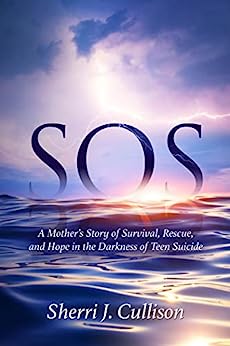You Have to Finish to 'Finish Well'!
In this Finishing Well UPGRADE, Dawn examines some of the ways we can obey God to finish well, and also why we may not finish projects or accomplish goals.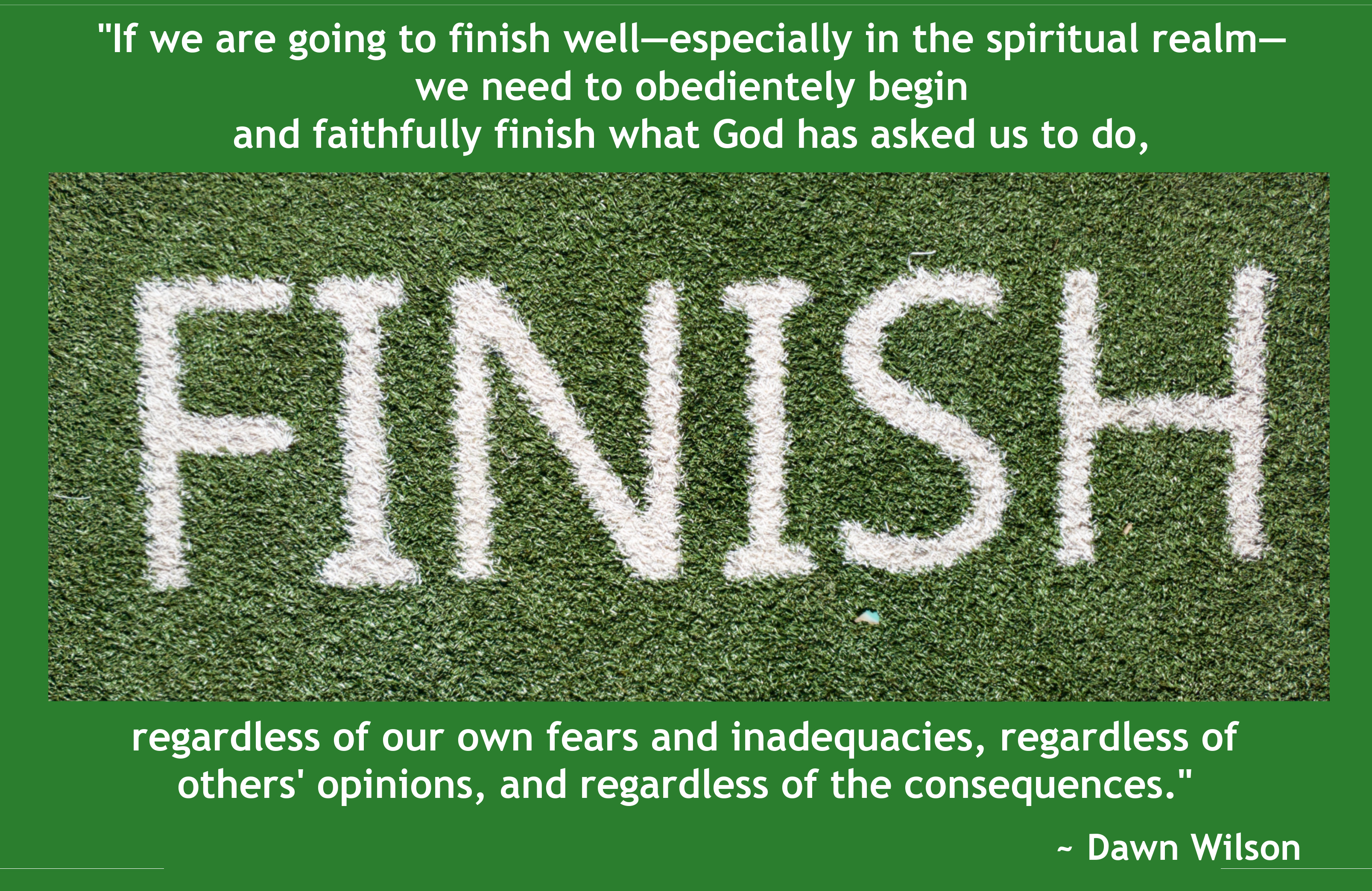
Many Christians are familiar with the parable of the talents (bags of gold) in Matthew 25:14-30. Jesus told a story about two faithful servants who were good stewards of what they had been given, increasing their master's wealth. Their master praised them, saying (vv. 21 and 23), "Well done, good and faithful servant."
For many years I've heard sermons and conference messages about how wonderful it will be to hear Jesus say that to believers for their stewardship on earth.
But the thought hit me recently, "You have to actually finish in order to 'finish well.'" I'll address that later in this post.
But first, What hinders us from finishing well?
I think the biggest hindrance to our finishing well is a matter of obedience.
When God makes clear to us a command, a responsibility, or some other point of action, we need to obey. My favorite evangelist, Del Fehsenfeld, Jr., said, "Obedience is doing exactly what God says, when He says it, with a happy face."
Obey completely, immediately, and with the right heart attitude.
So why, when God makes it clear He wants us to do something, do we lag behind—or worse, fail to move into action.
In Psalm 119, chapter one, I see at least three ways we fail in our goal of finishing well.
1. We fail to Submit to God's Word (Psalm 119:1-2a, 4)
The psalmist says,
"Blessed (happy) are those whose ways are blameless, who walk according to the law of the LORD. Blessed are those who keep his statutes . . . You have laid down precepts that are to fully obeyed."
God gives us commands, instructions, and rules guiding behavior. When we are not diligent to submit God and His Word, it will be harder to and keep His laws, statutes, and precepts—the responsibilities He places upon His people.
We can be in utter rebellion against something we read in the Bible, or subtly resisting it.
The devil doesn't care which it is.
Finishing well requires that we yield to the Word of God, and allow the Holy Spirit to use the Word to teach, guide, and correct us.
2. We Fail to Seek God with Our Whole Heart (Psalm 119:2b)
The psalmist tells readers to seek God "with all their heart," not part of it.
Partial, unenthusiastic love leads to partial, unenthusiastic obedience.
Deuteronomy 6:5 exhorts us to love God with ALL our heart, soul, and strength. No room for half-hearted love there.
Loving God extravagantly is how we obey Him "with a happy face."
Perhaps our lack of genuine love for God comes from not recognizing Him as the "first love" of our lives. We forget what it was like to be a new believer and our pledge to follow Jesus anywhere and obey Him in all things.
Truly loving God motivates us to want to obey Him.
"Love the LORD your God and keep his requirements, his decrees, his laws and his commands always" (Deuterionomy 11:1).
Finishing well is more than doing all the right things; it is being right with God—in a vital, loving relationship with Him.
3. We Fail to Walk in God's Ways (Psalm 119:3)
The psalmist says of those who are blessed,
". . . they do no wrong but follow his ways."
Our many sins hinder us from obeying God completely and immediately: selfishness, pride, fear, unbelief, giving in to ungodly peer pressure, love of people rather than God, greed and coventousness, anger, lust, etc.
King Saul disobeyed God because he was "afraid" of what people might say (1 Samuel 15:1-3, 12-29), and it cost him his kingdom. He did not finish well.
Finishing well requires the desire to walk with God in purity, and persistence in keeping short accounts with God concerning our sin.
The Goal is to Obediently, Faithfully Finish!
Certainly God can redirect us to new goals—which might include abandoning old ones.
And some people die before "finishing" their goals; but God weighs our success in terms of obedience and faithfulness to His goals for us.
But here's a practical point to ponder. In a November 22, 2021, motivational podcast "Finish More Goals by Asking 1 Surprising Question," Jon Acuff, author of Finish: Give Yourself the Gift of Done, said if we are not finishing our goals, we should ask,
"What am I getting out of NOT finishing?"
He explored three possible responses (summarized here):
- By not finishing, we control the outcome.
- By not finishing, we get praise for being a martyr, for being noble.
- By not finishing, we have lowered expectations from others—rather than building up a reputation of faithfulness and success that we have to live up to.
I have seen all three of those responses activated at certain points in my own life. Even worse, sometimes I don't even begin because of fear of failing or fear of others' opinions.
Acuff said,
"If what you gain by not finishing is greater than what you get out of finishing, you'll always be stuck."
If we are going to finish well—especially in the spiritual realm—we need to obediently begin and faithfully finish what God has asked us to do, regardless of our own fears and inadequacies, regardless of others' opinions, and regardless of the consequences.
To summarize, we finish well by loving and submitting to God and His Word, and then walking in His ways—keeping in mind that we can not only hear the Father's "well done," but there are also crowns to be won!
What is keeping you from finishing well? What is keeping you from finishing at all—or even not beginning? What can you do, starting today, to change that?
Dawn Wilson, founder and President of Heart Choices Today, is the creator the blog, Upgrade with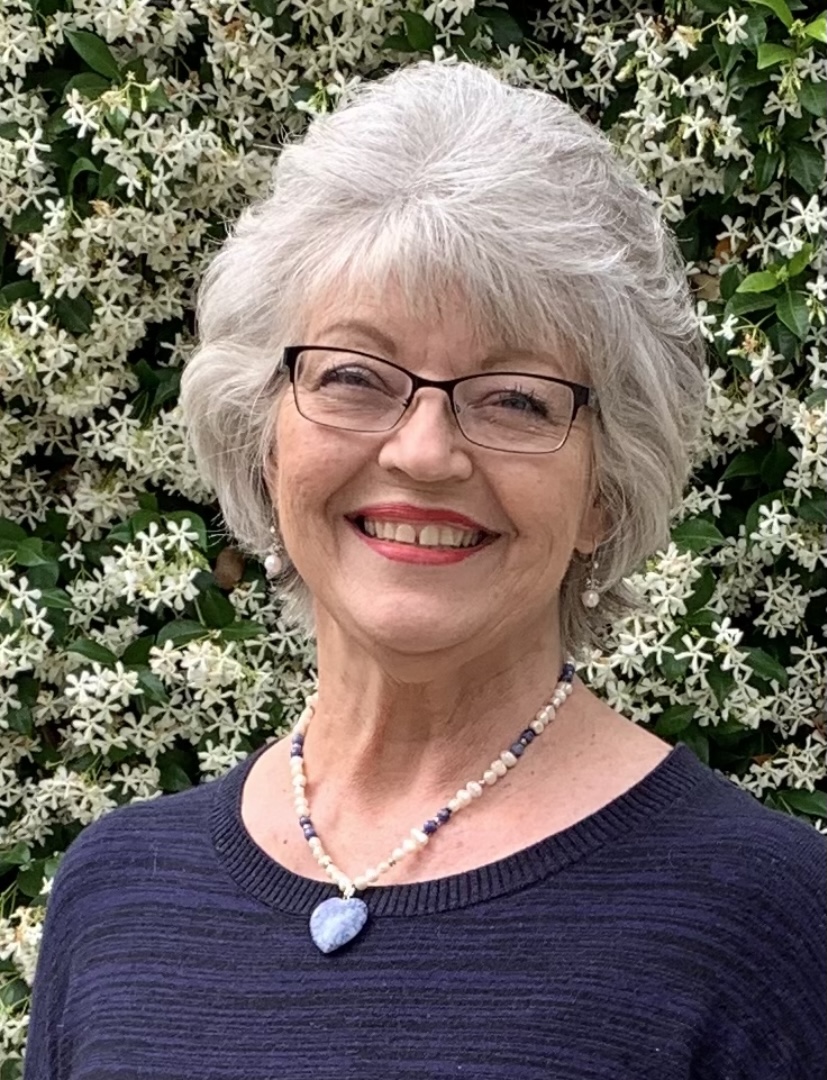 Dawn. She works part time at Revive Our Hearts, and is a regular columnist at Crosswalk.com. She and her husband Bob live in sunny Southern California, and they have two grown, married sons, three granddaughters and a rascally maltipoo, Roscoe.
Dawn. She works part time at Revive Our Hearts, and is a regular columnist at Crosswalk.com. She and her husband Bob live in sunny Southern California, and they have two grown, married sons, three granddaughters and a rascally maltipoo, Roscoe.
Graphic adapted, courtesy of Joshua Hoehne at Unsplash.
 Post a Comment → Posted on
Post a Comment → Posted on  Thursday, August 31, 2023 at 11:00AM
Thursday, August 31, 2023 at 11:00AM  Dawn Wilson,
Dawn Wilson,  Finish,
Finish,  Finishing Well,
Finishing Well,  Upgrade with Dawn,
Upgrade with Dawn,  Well Done Upgrade Your Life
Well Done Upgrade Your Life  Choices,
Choices,  Fighting Fear,
Fighting Fear,  Finishing Well
Finishing Well 





